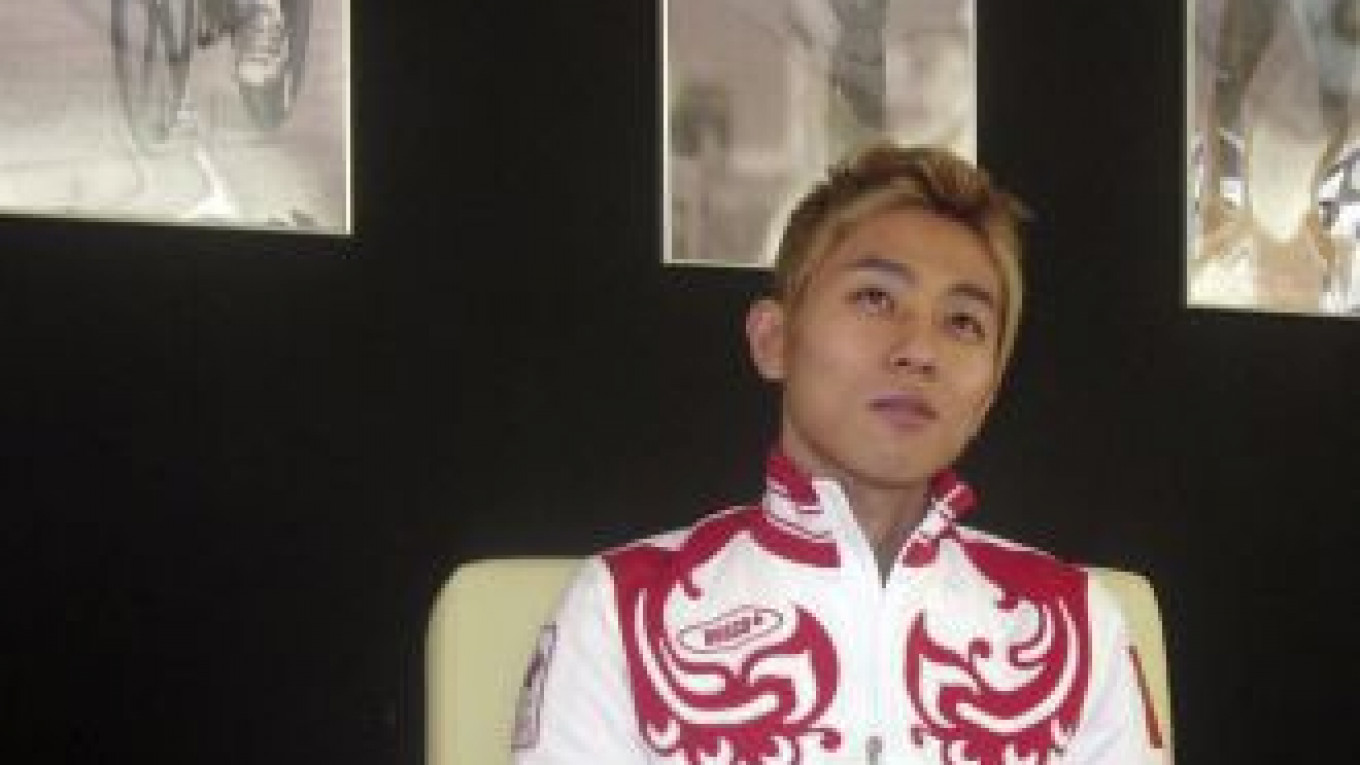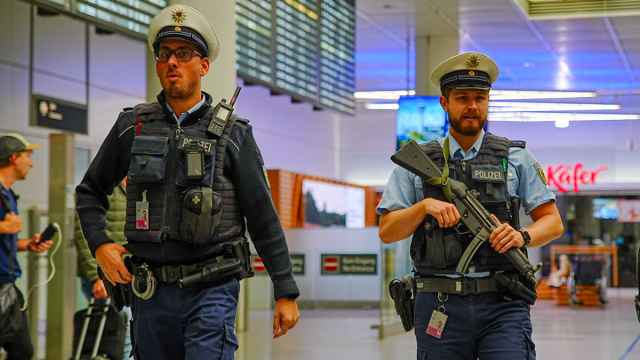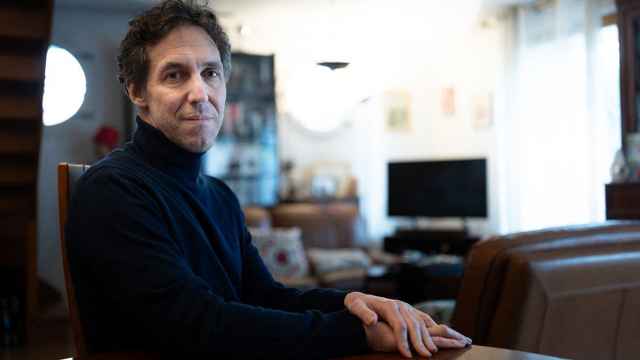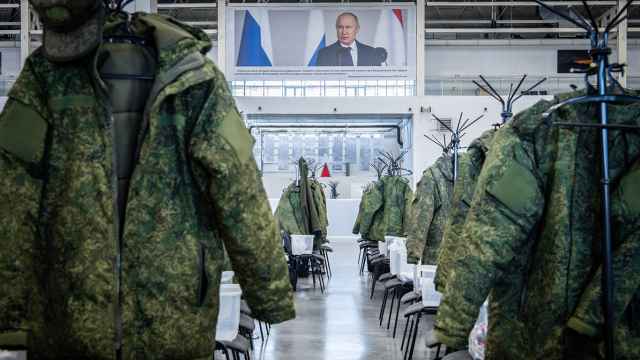South Korea-born short-track skater Ahn Hyun-Soo, who moved to Russia just over a year ago to pursue his athletic career, hopes to bring his adopted country its first Olympic medal in the sport at next year’s Winter Games in Sochi.
“I know how important these games are for Russia,” the 27-year-old, one of the biggest names in his sport and the winner of three Olympic gold medals for his native country at the 2006 Turin Games, said in an interview.
“And I can promise that I will do all I can to bring success to my new country.”
Ahn is one of a large number of world-class athletes who have been recruited by Russia in its attempt to top the medals table on home soil next February.
While some have criticized him for switching his allegiance, Ahn, now known as Viktor after changing his name when he acquired Russian citizenship at the end of 2011, said he merely wanted to prolong his career.
“Money was not the main factor in my decision. I wouldn’t do it just for the money,” he said through an interpreter.
Ahn said he had encountered problems with South Korean sports officials following his triumph in Turin.
“I’ve had some tough times mentally. Maybe there was some jealousy in the team. I also had a serious knee injury, which forced me to miss most of the 2008-09 season,” he said.
After failing to win a place on South Korea’s 2010 Olympic team, the Seoul native knew it was time for a drastic change in his life.
Asked why he chose Russia, Ahn said: “In fact it was my father who searched the Internet for a possible destination. I could have moved to America but ended up here. Please, don’t get me wrong. I have no regrets.”
Russia’s skating chief, Alexei Kravtsov, said he received an e-mail from Ahn’s father asking if his son could train with the Russian team.
“We jumped at the chance to have such an experienced skater on our team,” Kravtsov said. “I invited Ahn and his father to visit Russia. When they came, it didn’t take us long to come to an agreement.”
Ahn, who lives in a dormitory for athletes on the outskirts of Moscow, said he could easily adapt to almost any environment.
“Of course, it’s a different country — food, culture. But I don’t mind some difficulty living here. Even the cold doesn’t bother me that much,” he said.
“The only problem for me right now is the language. Russian is very difficult, but I want to learn as much as possible. Hopefully, I’ll be able to speak well enough to give interviews in Russian next year in Sochi.”
Russia has one of the largest budgets in speedskating thanks to solid funding from the state as well as private sponsors.
“Without being arrogant, I can say we probably have the biggest budget among all the elite teams,” Kravtsov said. “We provide our athletes with everything they need and even more.”
While he declined to give exact figures, Russian media put the cost of running the team at hundreds of thousands of dollars annually.
Siberia-born Tatyana Borodulina, another top skater with Olympic experience who was lured back to Russia to compete in Sochi, did not hide the fact that money was important.
The 28-year-old competed for Australia at the 2010 Games in Vancouver but decided to return home the following year for a last shot at an Olympic medal. She represented Russia at the 2006 Olympics before moving to Australia.
“I think it’s great,” Borodulina said this month after signing a sponsorship deal with electronics giant Samsung.
“Unlike football players, we’re not spoiled with big contracts, so any such help gives you added security.”
Ahn has won 20 world titles over distances ranging from 1,000 to 3,000 meters, as well as relays, but he is now focused solely on next February’s Olympics.
“I know how difficult it is to win an Olympic medal, let alone gold, so I’ll be more than happy just to get on a podium in Sochi,” he said.
A Message from The Moscow Times:
Dear readers,
We are facing unprecedented challenges. Russia's Prosecutor General's Office has designated The Moscow Times as an "undesirable" organization, criminalizing our work and putting our staff at risk of prosecution. This follows our earlier unjust labeling as a "foreign agent."
These actions are direct attempts to silence independent journalism in Russia. The authorities claim our work "discredits the decisions of the Russian leadership." We see things differently: we strive to provide accurate, unbiased reporting on Russia.
We, the journalists of The Moscow Times, refuse to be silenced. But to continue our work, we need your help.
Your support, no matter how small, makes a world of difference. If you can, please support us monthly starting from just $2. It's quick to set up, and every contribution makes a significant impact.
By supporting The Moscow Times, you're defending open, independent journalism in the face of repression. Thank you for standing with us.
Remind me later.






